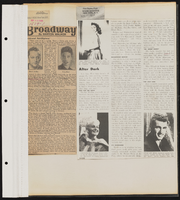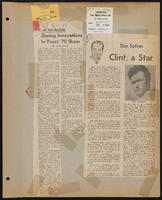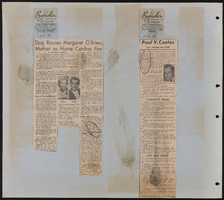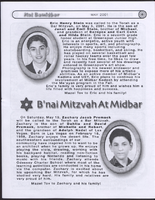Search the Special Collections and Archives Portal
Search Results


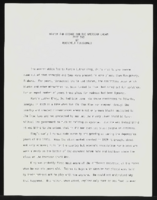
"Martin and George and the American Dream, part two": article draft by Roosevelt Fitzgerald
Date
Archival Collection
Description
From the Roosevelt Fitzgerald Professional Papers (MS-01082) -- Drafts for the Las Vegas Sentinel Voice file. On Martin Luther King, Jr.
Text
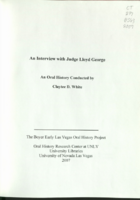
Transcript of interview with Judge Lloyd D. George by Claytee D. White, June 15, 2005
Date
Archival Collection
Description
Text
Sperling Kronberg Mack Holocaust Resource Center Records
Identifier
Abstract
The Sperling Kronberg Mack Holocaust Resource Center Records (1971-2018) mainly consists of correspondence, event planning documents, financial records, subject files, and newspaper clippings created by or related to the Sperling Kronberg Mack Holocaust Resource Center and the Nevada Governor’s Advisory Council on Education Relating to the Holocaust. Materials document educational conferences, remembrance events, and student field trips; curriculum planning, involvement with the Clark County School District, and educational materials about the Holocaust and other related historical events; and grant and fundraising activities. The collection also includes photographs and proclamations.
Archival Collection

